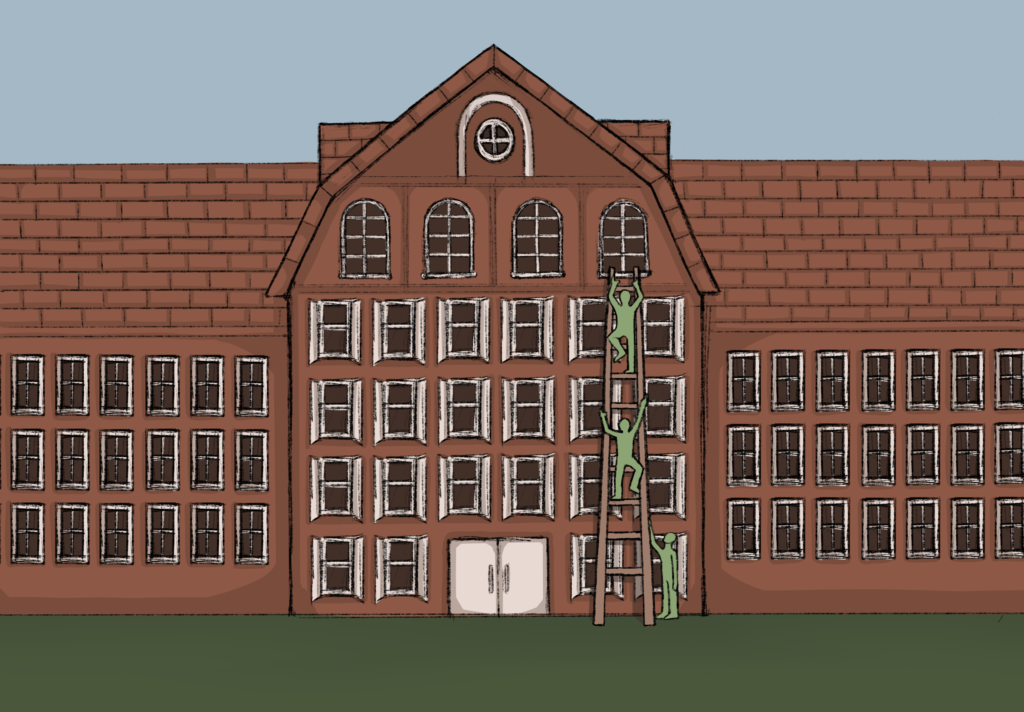One of my favorite aspects of Choate is the diversity of the population. I am always amazed by the different kinds of people I converse with in my classes, my extracurriculars, and my dinner conversations. Choate prides itself on its diverse community, as it 100% should, but is Choate doing a good job of providing equal opportunity to all students?
For Diversity Day this year, I facilitated a conversation on the socioeconomic discrepancies among the student body and how it affects the Choate community. My group diverged into a discussion regarding job opportunities for students and if there should be more flexibility for students to have jobs during the school year. We even considered the idea of offering jobs as substitutions for sports. This conversation came about after concluding that many opportunities offered by Choate — like food, mall, and New York City shuttles — involve spending money that many Choate students cannot afford. We ended in agreement that those of different socioeconomic classes have different experiences and opportunities at Choate. We set out to come up with a solution to fix this.
At the moment, there are very few student job offerings on campus. Some of the jobs Choate provides include calling alumni in the alumni office and ushering for different performances at the PMAC; aside from these, on-campus job opportunities are quite sparse. Could Choate possibly benefit by having more student jobs?
Many students who can’t participate in SAC weekend events due to monetary reasons would benefit from making a salary through a student job. Unfortunately, this would potentially lead to more of a socioeconomic divide on campus, as those on financial aid would hypothetically be the only students with jobs. But honestly, who really knows how this would play out? If students could work a job at McDonald’s or Mr. D’s as an after-school activity or even on weekends, this would gain the attention of many students on campus, not just those on financial aid. The students of higher socioeconomic statuses in the discussion I facilitated said they would jump at the opportunity to have a job. “It feels good to earn your own money rather than have money handed to you from your parents,” as one student in the discussion put it. Student jobs could even the playing field — as student of all backgrounds would be interested in working — but could also imbalance it if only students from less privileged backgrounds work.
Like every proposed idea, there are pros and cons. From what I have seen, the current Choate community and students do a good job at including and befriending one another regardless of socioeconomic difference; there is no apparent divide. We are all students that work through the continuous grind Choate demands of us; we carry on with our daily lives on campus without thinking about one another’s wealth. Student job offerings could potentially expose the wealth discrepancy among the student body, but it could also further unite the student body. If anything, we should continue to hold more discussions about student job offerings on and off campus, and see how the implementation of more job opportunities could impact our community.




